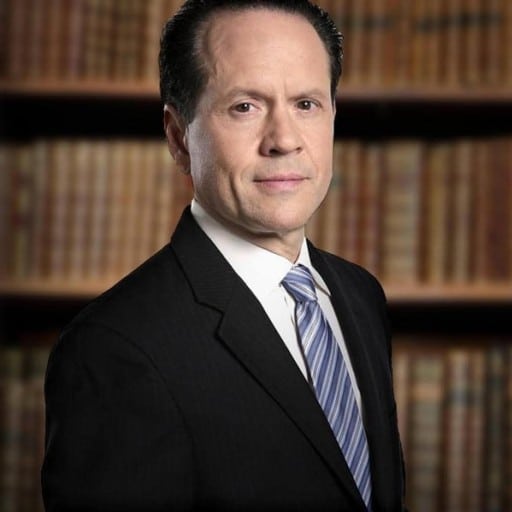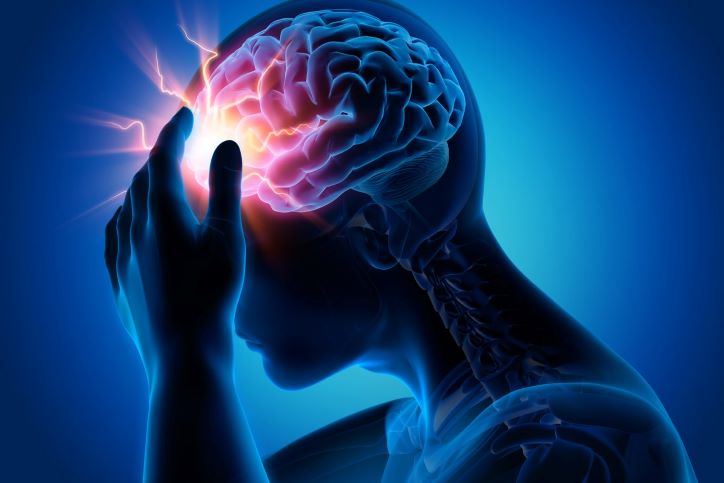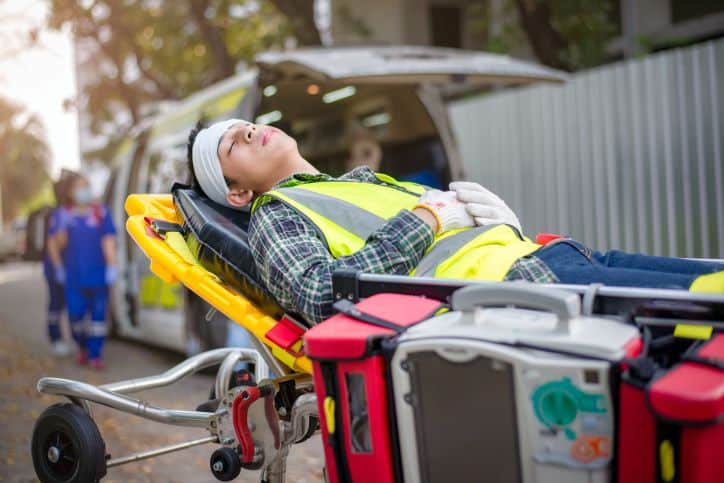Is a Concussion a Traumatic Brain Injury?
Any harm that impacts the function of the brain is a traumatic brain injury. Although some people may assume that a concussion is not serious, it is considered a type of traumatic brain injury, according to the Centers for Disease Control and Prevention (CDC)1.
The effects of a head injury can have lasting impacts on accident victims, even if the injury itself is not life-threatening. Our Miami brain injury attorneys explain.
What Is a Concussion?
A concussion is an intense jarring to the brain within the skull. The brain may bounce against the skull due to a sudden impact such as a car accident, fall or blow to the head. Although a concussion is not a visible injury, it can affect brain function in several ways.
Some common symptoms of concussion include:
- Pressure headache
- Nausea
- Vomiting
- Dizziness
- Blurred vision
- Issues with balancing
- Feeling dazed or groggy
- Confusion and memory problems
- Slowed speech or response times
- Change in mood, personality or behavior
If you have any of these symptoms or observe another person with these symptoms after an accident, it’s vital to seek professional medical help right away.
Are you suffering from a traumatic brain injury due to an accident? Our attorneys are ready to fight for justice. Schedule your free consultation today.
Can You Sue After Getting a Traumatic Brain Injury?
Yes, a brain injury is a personal injury if it occurs because of the legal fault of another person. You can sue for getting a concussion if it requires medical treatment. A concussion is a qualifying injury that may form the basis of damages in a personal injury claim based on negligence or intentional misconduct.
Concussions count as traumatic brain injury for accident compensation. While the impact may not be disfiguring, it still impacts the victim’s function. The victim must take extra care to present proof of the injury and explain how it has harmed their life, including limiting activity, necessary medical care, the ability to work, and the cause of pain and suffering.
How Much Is the Average Settlement for Concussion?
A settlement for concussion can more or less range anywhere from $15,000-$100,000. The number varies significantly because of differences in the severity of the injury. A settlement is proportional to the degree of medical treatment needed and the extent of physical harm.
To receive a settlement for any traumatic brain injury, you must prove the elements of a personal injury claim, including:
- Negligence
- Injury
- Causation
- Damages
Brain injuries are not visible. That means you must carefully gather the evidence to prove that you suffered a concussion. In addition, it’s critical to demonstrate the link between the accident and the concussion. The victim must prove that the accident caused the head injury.
RELATED: How Are Personal Injury Settlements Paid Out?
Proving Concussion in Personal Injury Claims
A victim who relies on a concussion as the basis of a personal injury claim should be aware of the challenges in presenting medical evidence. The science of traumatic brain injuries is still developing. Victims should not assume that jurors, or even insurance adjusters, understand brain injuries and their implications.
Most brain injury claims rely on scientific evidence. Florida law § 90.7022 allows testimony by experts if scientific knowledge can help the trier of fact determine an issue. For a traumatic brain injury victim, that means presenting a medical expert. The medical professional can explain the injuries suffered by the victim and detail the medical care needed. They can speak to the suffering that the victim is likely experiencing from the injuries.
A person qualifies to testify as an expert based on their knowledge, skill, experience, training, or education. The witness should offer information about their education and professional background to demonstrate their qualification. Then, they may testify based on the facts, the data, and reliable principles tied to the case. When the victim has experts to testify, they must be prepared to follow all of Florida’s laws for the presentation of medical testimony.
Our Miami attorneys can help build your case with strong evidence and expert witness testimony. Call 1-800-429-4529 today to learn more.
Florida Personal Injury Claims Involving Concussion
Here are some examples of Florida cases that involve claiming compensation for a concussion:
1. Eli Witt Cigar and Tobacco Co. v. Matatics
In Eli Witt Cigar and Tobacco Co. v. Matatics, 55 So.2d 549 (1951)3, the defendant hit the victim while the victim was riding a motorcycle. The victim suffered a concussion and other injuries. Soon after the accident, the victim began to suffer from dizzy spells. One day, the victim climbed a ladder in his home. While on the ladder, he suffered a dizzy spell. He fell and injured his spinal cord, causing paralysis.
During litigation, the defendant challenged the claim based on causation between the accident and the paralysis. The Florida court sustained the claim in favor of the victim. In doing so, they relied on both expert testimony and the victim’s own testimony that they had never had a dizzy spell before the accident.
As an accident victim, remember that your own testimony may be critical to the claim. Your personal injury attorney can help you prepare and present evidence of injuries and damages effectively.
2. Bass v. Pembroke Pines
The victim claimed compensation for concussion and other injuries following a motor vehicle accident in Bass v. Pembroke Pines, 4D07-1039 (Dist. Ct. App. 4th Cir. 2008)4. The court dismissed the claim as a sanction for the victim failing to disclose prior treatment for migraine headaches in answers to interrogatories.
Victims should work with an experienced personal injury attorney to fully understand the implications and requirements when completing interrogatories to ensure compliance and avoid sanctions.
3. Johnston v. Tueche
In Johnston v. Tueche, 5D00-2826 (Fla. Ct. App. 2000)5, the defendant attempted to light a cigarette while driving. She ran a stop sign and struck the victim. The accident aggravated pre-existing conditions for the victim, including a prior concussion from a previous accident.
The parties contested the number of damages needed to treat the victim’s injury. On appeal, the court affirmed that it is the jury who determines the award of damages for the victim. If the decision is not arbitrary, it is up to the jury to resolve the conflict in the testimony and arguments.
Florida Case Law and Concussion Compensation
These cases underscore the variety of issues that may arise in claims involving brain injuries. Legal issues may come into play in several areas, including causation and damages. A victim must also comply with procedural requirements, including disclosure in the discovery process.
An experienced attorney for traumatic brain injuries claims can assist with the scientific evidence needed to pursue the claim and handle the procedural requirements that the victim must follow throughout.
Attorneys for Accident Claims Involving Brain Injuries
If you have been in an accident claim involving a concussion, contact our Florida brain injury lawyers today to talk about your claim. Learn what your case might be worth and how we can help you claim the compensation that you deserve. Call or send us a message to get started.
Sources:
1Centers for Disease Control and Prevention (CDC). What Is a Concussion? Retrieved 9 November 2021.
3Eli Witt Cigar and Tobacco Co. v. Matatics, 55 So.2d 549 (1951)
4Bass v. Pembroke Pines, 4D07-1039 (Dist. Ct. App. 4th Cir. 2008)
5Johnston v. Tueche, 5D00-2826 (Fla. Ct. App. 2000)
About the Author

Jack G. Bernstein, ESQ.
Jack Bernstein is a hard-working and highly motivated personal injury attorney in Miami, Florida with over three decades of experience. He is a strategist and idea person, with a genuine passion for helping his firm’s clients. If you’ve been injured, contact Jack Bernstein today for a free evaluation of your case.



